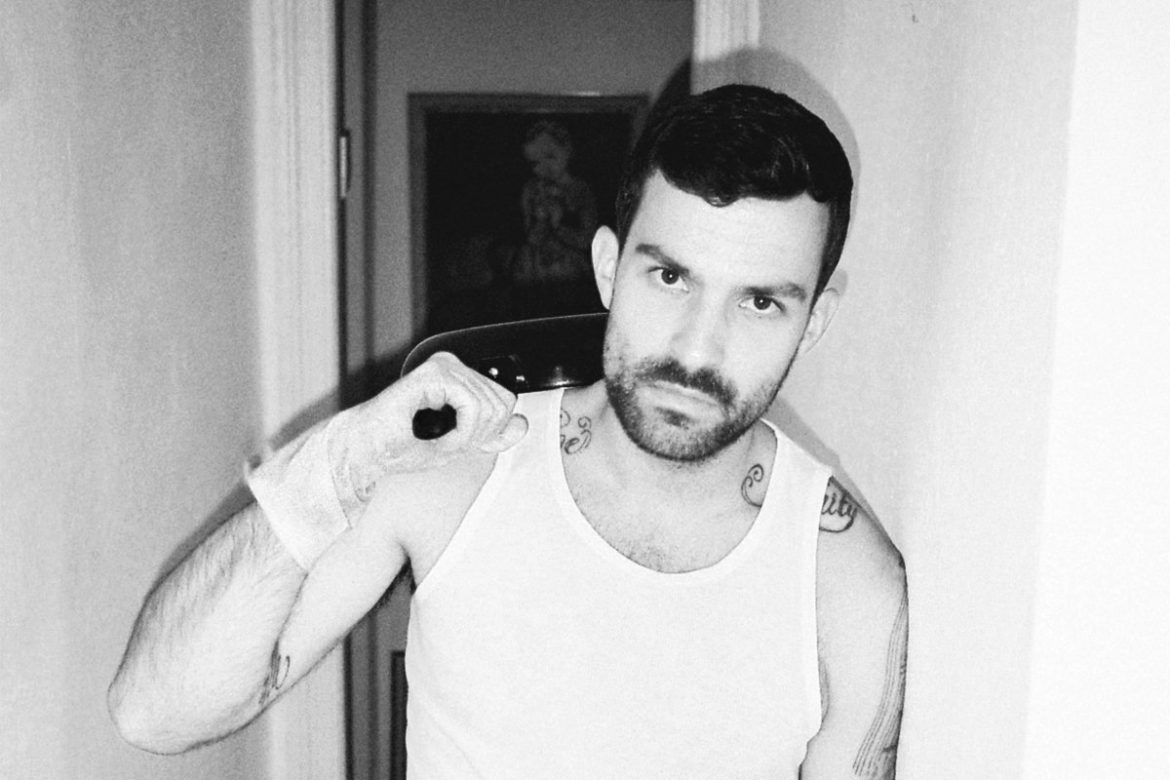Name: Manuel Iljitsch
Age: 27
Place of birth: Göttingen
Current place of residence: Berlin
Job: Author, copywriter, actor
Professional education: Surgeon
Website: www.iljitsch.de
Social: Instagram
To do him justice in just a few sentences is difficult. Manuel Iljitsch does a lot of things and he does them well: He produces funny videos, lends others his voice or face for money, more often he writes texts for advertising or for fun. Short stories, poetry, weird anecdotes. Right now he’s trying hard to write some sort of novel. In truth, this intro doesn’t really serve him well. At least we got a good picture of him.
Literature, film, advertising, ideas and concepts – it is not easy to categorize you and your work. How do you feel about categories in general? I think they are okay and ultimately inevitable. Claiming to be and to think beyond categories has become the most popular category of all nowadays. I guess many things would be much easier if I could just restrict myself to one or two categories. People no longer know what to buy me for, though I really want to be bought. In any case, it would be rather ridiculous to associate my doing with some great pseudo-political idea of crossing borders. I simply get a kick out of many things, but not enough out of any particular thing to limit myself to it.
Why did you leave Düsseldorf? It was useful for business and social reasons to go to Berlin. Everyone says so, but in my case, it is true. Everyone says that, too. In addition to that, I was young, and when you are young you cannot stay at a place forever.
Do you miss the city? Yes, in a way. Recently more often.
If yes – what do you miss most? The Bistro Zicke. And Carlsplatz and the Japanese quarter, a few good people, the Rhine. That you can reach many places by foot, I like walking so much. The aggressive geese around Schwanenspiegel who I have always been afraid of. Now I would sometimes be glad if they stalked and mobbed me again.
In former times, people would have called you a „Lebenskünstler“, a connoisseur of the art of living. Does that fit? I still hear that once in a while. I like the expression – it somehow sounds like old-fashioned romanticism, like analogue world, like a smelly bon vivant who happily hustles day by day for a lukewarm cutlet and a glass of wine and a soft neck that he can fall asleep on. And the next morning, he just gets up and decides what to do next. There is also an undertone of uncertainty – you never really know whether the guy is really talented or simply lazy or both at the same time. Yes, I am that guy to a pretty high degree. Clichés, after all, exist to be fulfilled. It still happens to me that I only have a hundred Euros left in my bank account, and then I go out to eat and drink for a hundred Euros, and the next morning I am hungry and have no cigarettes. And then somebody has to invite me and give me a packet of cigarettes. And when I have money, I invite people. So everything is fine.
What is the mission of poetry in your view? Oh, I have no particular theoretical ideas in this regard. I think the times when poetry changed the world are over. If they ever existed. But on a small scale, poetry can give things a value that reaches beyond materiality and usability. It glorifies and exaggerates situations, circumstances, people, relationships. And the weather. That is the reason why I appreciate it so much. Is a tree characterized by its dimensions and its chlorophyll production or by the singing drunk guy who pisses against it in the morning after his girlfriend has left him? I don’t know exactly. Eventually (I am really a hopeless romantic) the banal has its own poesy. You only have to look at it from a slightly diagonal angle. For me, that is rather a private pleasure – discovering the beautiful, the interesting especially in the small stuff upgrades life enormously. Of course I’m glad if somebody enjoys my views. But poetry is basically self-sufficient. Poetry has no mission, that is the great thing about it.
And the mission of literature? You always need to be careful not to make this sound elitist – I think literature should still upset, urge, irritate, in whatever respect. Literature doesn’t have to be fascinating, does not need to obey reading habits. And it must not degenerate into a cheap instrument of a feel-good holiday from everyday life. I like it when a book screws me up, when it leaves me somewhat smashed. But there may be different views on that as well, under pastel-coloured cashmere, after work, with a cup of tea and a smooching cat.
With which author, no matter of what period, would you like to have a glass of Altbier in Düsseldorf? What would you talk about? Probably I am supposed to say: with Bukowski. But I think he is too busy writing quotes on the walls of cute little bars. Therefore I would perhaps make do with Max Frisch, and we would smoke and endlessly talk about the agonies of man that are our own fault, or address the irresistibility of pony tails and high-cut jeans. Or with Robert Musil, but I would simply tell him that nothing has changed and that he may leave again. That is what he would certainly do, what should he want from me.
Does the world need more or fewer crazy people? Why? This is one of my favourite subjects, but it is also, let’s say: difficult. What does being crazy mean in the first place? The poor guys in the closed institutions probably lead a pretty colourful life, but they lack the literary distance to themselves to ever find that fascinating. Genuine craziness knows only itself, has nothing to do with the rest of the world. That makes you quite alone, but you wouldn’t realize even that. I think nobody wants to end up there when addressing the romantic associations with being crazy. What people want is individuality – a certain touch of lunacy, but without the consequences. Something that ennobles every boring existence with a flair of the extraordinary, the somewhat meaningful, misunderstood. This kind of craziness is zeitgeisty and sexy, of course. And I think it’s based on the old misunderstanding that craziness and genius are the same. There is a connection, certainly. But putting on certain features of crazy people like make-up does not make you a genius yet.
Where do you see yourself in ten years? Oh, I don’t know exactly, neither do I want to know exactly. I would only be sad if it did not work out and miss out on all the possibilities on the way. The main thing is – there must be plenty of love and good food. The rest happens by itself.
Your personal salute to Düsseldorf and to the Düsseldorfers? Hello! I will definitely come back for a trip soon. Maybe that makes you happy. If not, that doesn’t matter. I will come back for a trip anyway.
Thank you!
Text & Interview: Barbara Russ
Photography: Esteban
© THE DORF 2017







